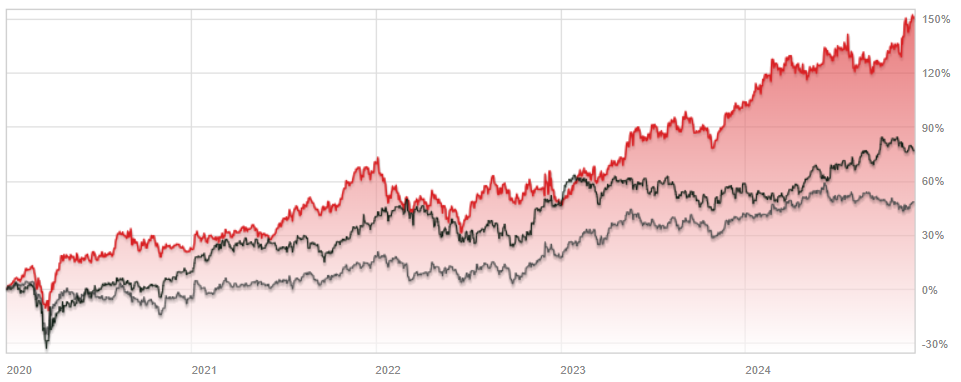By Bovest
•
April 4, 2025
The widely anticipated tariffs were announced last night via executive order, on America’s so-called ‘Liberation Day’ and in discussions with our partners at Morningstar, the following should be noted. The sweeping announcement is intended to ‘make America wealthy again’ as tariffs effectively tax foreign producers on their imported goods, as a percentage of their value. The US is currently the largest goods importer in the world and is currently running a trade deficit (imports more than it exports). President Trump has said that he will not negotiate, however, if countries are willing to lower their charges on US goods, the White House will reduce the rate in effect. Market impact US Equities have sold off sharply, particularly those reliant on imported goods, as well as foreign companies that have significant exposure to the US market. At the time of writing, the FTSE 100 was down 1.4% to below 8,500, whilst sterling had appreciated to 1.32 against the dollar. Bond prices have broadly risen as investors have sought perceived safer assets. SA equities and bonds responded negatively after markets opened. The All-Share was down around -3,5% by end of-day with the decline being led by Financials at -4.3%, while both Resources and Industrials were down approximately -2.4%. The yield on the SA 10-year government bond spiked sharply to 11.3%, a move of 0.8% off the previous day's close. The rand remains relatively range-bound between R18.60 – R18.80 despite general US dollar weakness against most major currencies. What we know about the Tariffs: The tariffs that were imposed last night are of a reciprocal nature, meaning that countries are free to retaliate with their own tariffs on the US. Below are some of the standout tariffs that Trump has imposed across the globe: · China 34% · India 26% · Japan 24% · EU 20% · UK 10% South Africa, which currently applies 60% tariffs on the US, was handed a 30% reciprocal tariff. The effective rate is likely to be lower given that key commodity exports, including gold and platinum, are currently exempted. What we don’t know President Trump has not made it clear whether the tariffs will remain in place indefinitely and whether indeed they will remain at the initial level. There are many factors that could impact their longevity, including legal ramifications and future election implications. It is also yet to be seen how and when other countries will react to these changes. Countries may look to increase their current tariffs on the US or indeed may consider reducing them. Additionally, President Trump has stated that the only way to gain exemption from the tariffs is to set up factories and build products in the U.S., so we await to see how countries and companies react to this proposition. What’s next? While volatility and policy uncertainty will likely persist in the short term, we recommend investors keep a cool head. The challenge is to avoid overreacting to the elevated day-to-day volatility and remain focused on your financial plan. Central Banks have been in a holding pattern in anticipation of actions taken by President Trump, and therefore this announcement may have an impact on future Central Bank policy and interest rates. From a longer-term perspective, we may see implications for economic growth across various regions, however, it is too early to tell at this stage. From an investment standpoint, we continue to focus on the fundamentals, maintaining a long-term mindset, whilst paying attention to valuations. Market volatility can provide investors an opportunity to rethink their portfolios and find some better-valued investments with more attractive returns, however, it’s important to note that while selloffs will produce bargains, investors shouldn’t buy simply because stocks look less overvalued. Investment is always full of uncertainty, and therefore the Bovest solutions are constructed with this in mind. Valuations are key in our decision-making process, whereby our research process identifies return drivers from oversold assets, offering investors a high margin of safety. Against that, we also hold defensive assets that can add ballast to portfolios during periods of turbulence, including high quality government bonds and defensive equities such as consumer staples. Diversification continues to be a strong portfolio strategy in these times of uncertainty. Regards, The Bovest Team





